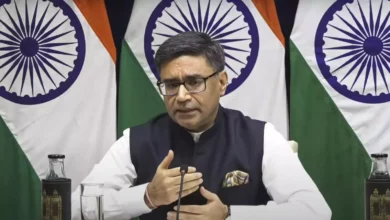
Bill Gates has stirred a hornet’s nest among netizens over his recent statement on India during a podcast. In an interview with Reid Hoffman, the tech mogul described India as a “kind of laboratory to try things,” a remark that has gone down really badly with many in the country, with critics accusing him of exhibiting “white privilege.”
Asked about inspirations from outside his industry, Gates said, “India is an example of a country where there are plenty of challenges—health, nutrition, and education are improving. The country is stable enough and generating sufficient government revenue, making it likely that in 20 years, people will be dramatically better off. It’s kind of a laboratory to try things that, once proven in India, can be implemented elsewhere.”
He further said, “Our biggest non-US office for the Foundation is in India, and the majority of pilot programs we are rolling out globally are in partnership with Indian organizations.”
Reactions to the comments by Gates have been fast and furious. A user on X wrote, “India is a laboratory, and we Indians are guinea pigs for Bill Gates. His influence goes from government to opposition and media. His office operates here without FCRA, yet our education system has made him a hero! When will we wake up?”
He has also been compared to such figures as George Soros, who is often the object of a number of conspiracy theories, or to the Rothschild family, which is often assumed to secretly control the whole world.
Some have urged the Indian government and the Prime Minister, Narendra Modi, to restrict Gates’ activities in the country. Others have come to his defense, interpreting the comments as positive. As one supporter said, “He is discussing the development of positive initiatives that could work universally, like UPI.”
Another added, “India is a complex country, and if any human development program succeeds here, it stands a good chance of succeeding in many other places. It will also empower Indians to lead in managing such programs effectively.”
The furor over the comments by Gates underlines the complexities of international philanthropy and the perceptions of foreign influence in the Indian development narrative.



